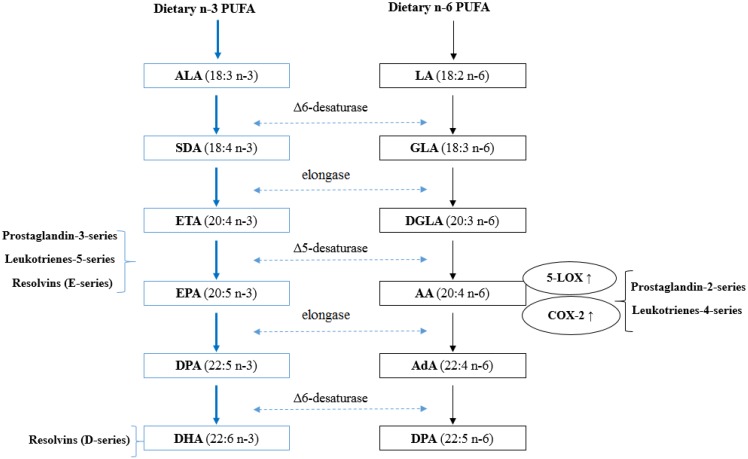
| PMC full text: | Published online 2014 Nov 18. doi: 10.3390/nu6115184
|
Figure 1
Synthetic pathways of long-chain PUFA and eicosanoids. α-linolenic acid (ALA; 18:3n-3) and linoleic acid (LA; 18:2n-6) are essential PUFA obtained from the diet, and involve in similar sequential desaturation and elongation steps, give rise to long chain, more unsaturated PUFA eicosapentaenoic acid (EPA; 20:5n-3), docosahexaenoic acid (DHA; 22:6n-3), and arachidonic acid (AA; 20:4n-6). Relevant intermediates in these pathways include SDA (stearidonic acid), ETA (eicosatetraenoic acid), DPA (docosapentaenoic acid), GLA (γ-linolenic acid), DGLA (dihomo-γ-linolenic acid) and AdA (adrenic acid). Both AA and EPA are substrates for the synthesis of eicosanoid products such as prostaglandins (PG) and leukotrienes (LT). The products of n-6 PUFA tend to promote cell proliferation while the products of n-3 PUFA have anti-tumorigenic properties. n-3 PUFA may lower the risk of BC by disrupting the biosynthesis of AA-derived inflammatory eicosanoids.
